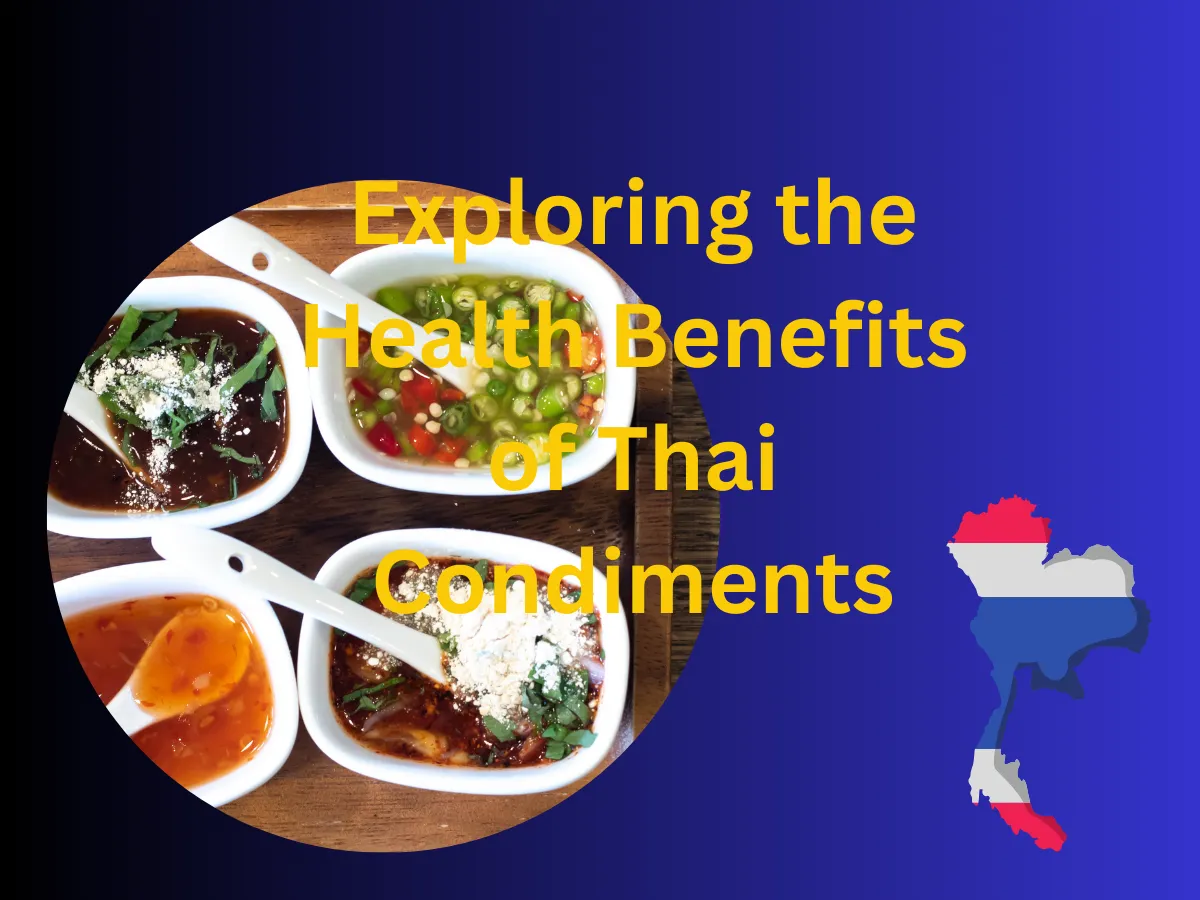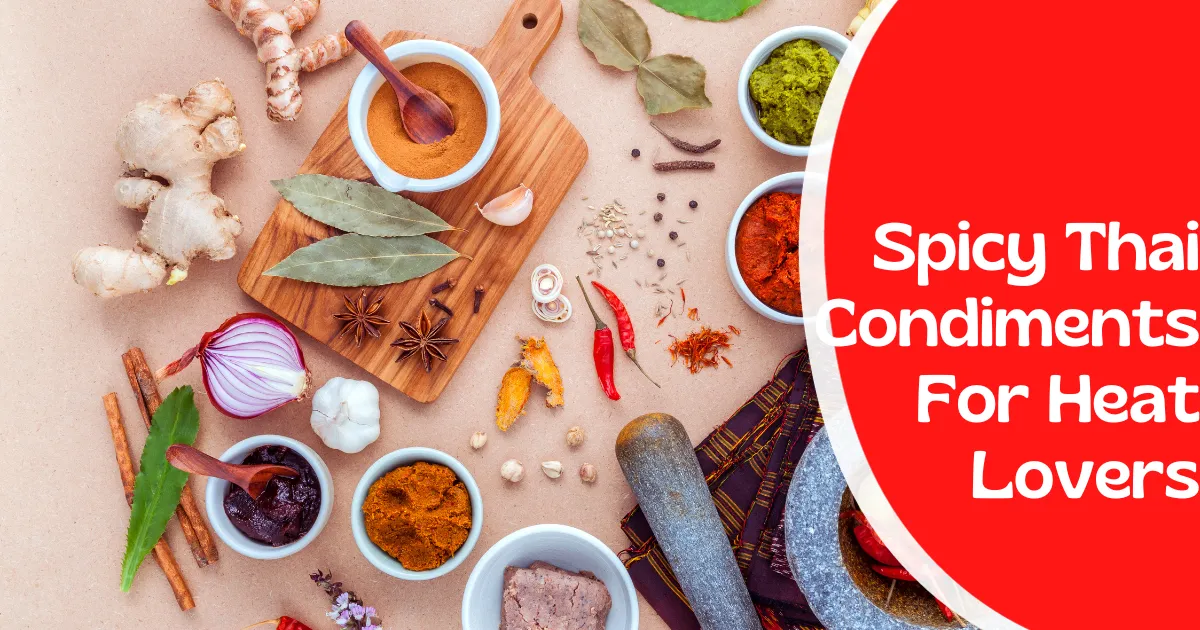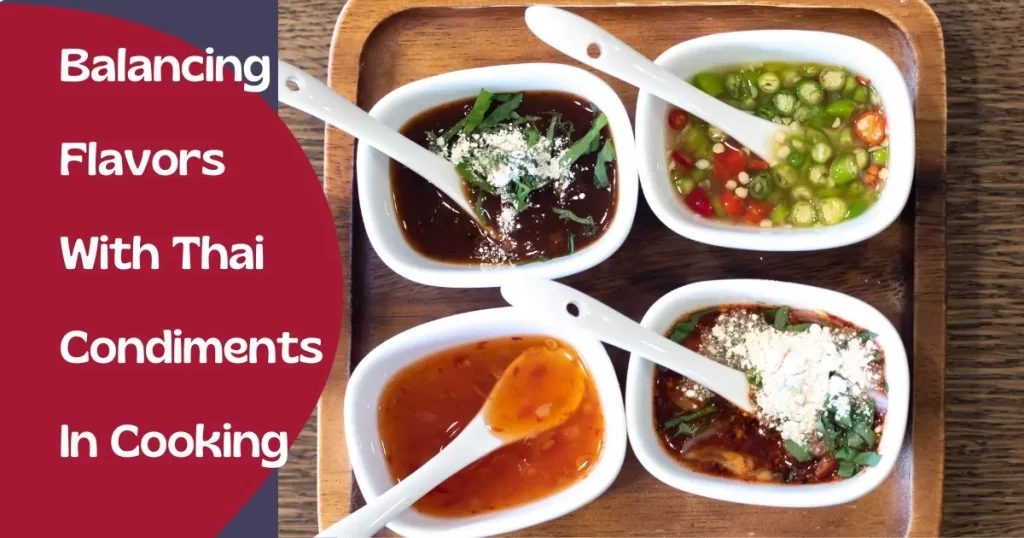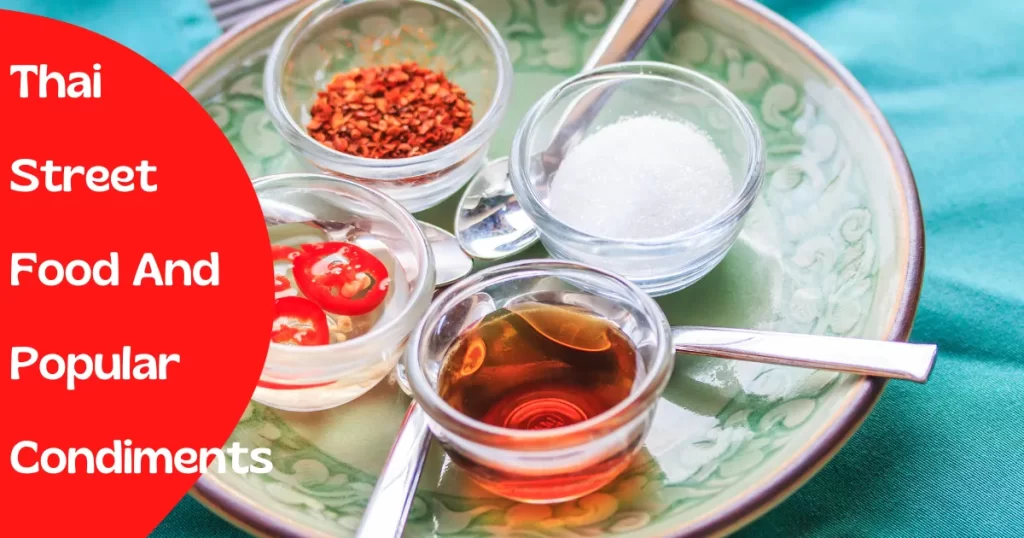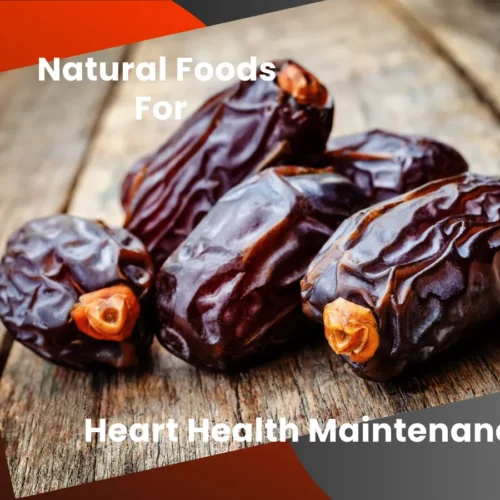Thai cuisine is renowned for its bold and vibrant flavors, and a key contributor to these flavors is the use of condiments (Thai condiments). These seemingly small additions to dishes play a significant role in elevating taste and providing a unique twist to traditional Thai recipes.
Beyond their flavor-enhancing qualities, Thai condiments also offer surprising health benefits. In this article, we will delve into the secrets of Thai condiments and unveil how they can positively impact your health.
Thai condiments not only add flavor and depth to dishes but also have surprising health benefits. From fish sauce to sweet chili sauce, these condiments are packed with essential nutrients and compounds that can improve overall health.
The use of condiments in Thai cuisine is not just about adding flavor but is also about creating a balance of sweet, sour, salty, and spicy tastes.
Spicy Thai Condiments For Heat Lovers
Fish sauce in Thai cuisine and its nutritional value
This pungent and salty liquid is made from fermented fish and is used in a variety of dishes, from soups and curries to stir-fries and marinades. It may not sound very appetizing, but fish sauce is the secret ingredient that gives Thai dishes their distinct umami flavor. It is often used in place of salt and adds a depth of flavor that is hard to replicate.
Shrimp paste and its iron content in Thai cooking
One of the most unique condiments in Thai cuisine is shrimp paste chili sauce, also known as nam prik kapi. This sauce is made from a combination of shrimp paste, chili peppers, garlic, and lime juice. It is commonly used as a dipping sauce for vegetables and meats.
While it may not be for everyone due to its strong flavor, this condiment has surprising health benefits. It is rich in probiotics, which are beneficial bacteria that help improve gut health. It also contains vitamin B12, which is important for the production of red blood cells and for maintaining a healthy nervous system.
This thick and potent paste is made from fermented shrimp and is used in many dishes, particularly in the southern region of Thailand. It has a strong and distinct aroma, but when used in moderation, it adds a rich and savory flavor to dishes.
Shrimp Paste Chili Oil
One of the most unique and lesser-known condiments in Thai cuisine is shrimp paste chili oil. This condiment is made by frying shrimp paste, chili peppers, and garlic in oil until fragrant and then blending it into a smooth paste. It is often served as a dipping sauce for grilled meats or used as a condiment for noodle dishes. The combination of the salty shrimp paste, spicy chili peppers, and aromatic garlic creates a flavor explosion that is sure to tantalize the taste buds.
Health advantages of chili peppers in Thai dishes
The famous Thai sweet chili sauce is a combination of chili peppers, garlic, sugar, and vinegar, and it is commonly used as a dipping sauce for spring rolls and other fried dishes.
While it may not be the healthiest condiment on this list due to its high sugar content, it does have some health benefits. Chili peppers contain a compound called capsaicin, which has been found to have anti-inflammatory properties. Garlic is also known for its antibacterial and antiviral properties, making this sauce a good choice for boosting the immune system.
Chili peppers are another essential component of Thai condiments. These small but mighty peppers come in a variety of shapes, sizes, and levels of spiciness. They are used in many Thai dishes, from salads and soups to curries and sauces. The most commonly used chili pepper in Thai cuisine is the bird’s eye chili, known for its intense heat and fruity flavor. It is often used in Thai chili pastes and sauces, adding a fiery kick to dishes.
Thai chili sauce, Sriracha
Last but not least, we cannot talk about Thai condiments without mentioning the famous Thai chili sauce, Sriracha. This spicy and tangy sauce is made from chili peppers, vinegar, garlic, and sugar, and is a staple in many Thai households. It is often used as a dipping sauce for spring rolls and dumplings, and it can also be added to stir-fries and marinades for an extra kick of flavor.
Tamarind Paste
Another popular condiment in Thai cuisine is tamarind paste. This tangy and slightly sweet paste is made from the pulp of the tamarind fruit and is used in many dishes, particularly in soups and curries. It adds a sour and fruity flavor to dishes and is often used in place of lime juice. Tamarind paste is also a key ingredient in the popular Thai dish, pad thai, giving it its signature tangy taste.
Historical significance of condiments in Thai cooking
Condiments have been an integral part of Thai cuisine for centuries, with their origins dating back to the ancient times of the Sukhothai Kingdom. During this period, the use of spices and herbs in cooking was prevalent, and it was believed that these ingredients not only added flavor but also had medicinal properties. As trade routes opened up, the influence of neighboring countries such as China and India brought in new spices and herbs, further enriching the Thai cuisine.
Trade influences on Thai condiment diversity
The use of chili peppers in Thai cuisine can be attributed to the influence of Portuguese traders who introduced them to the country in the 16th century. Today, chili peppers are a staple in Thai cooking, and they add a fiery kick to dishes, making them a favorite among spice lovers.
In addition to adding flavor to dishes, condiments in Thai cuisine also hold cultural significance. In Thai culture, food is not just about sustenance but also about bringing people together and fostering a sense of community. Condiments are often served on the side, allowing diners to customize their dishes according to their taste preferences. This communal way of dining is deeply ingrained in Thai culture and is a reflection of the country’s warm and welcoming nature.
Conclusion
In conclusion, the use of condiments in Thai cuisine is not just about adding flavor but also about preserving cultural traditions and bringing people together. From fish sauce to chili peppers, each condiment has a unique history and cultural significance that adds to the richness of Thai cuisine. So the next time you enjoy a delicious Thai dish, remember the secrets behind the condiments that make it truly special.
So the next time you enjoy a delicious Thai meal, remember to savor the flavors and the health benefits that come with it.
